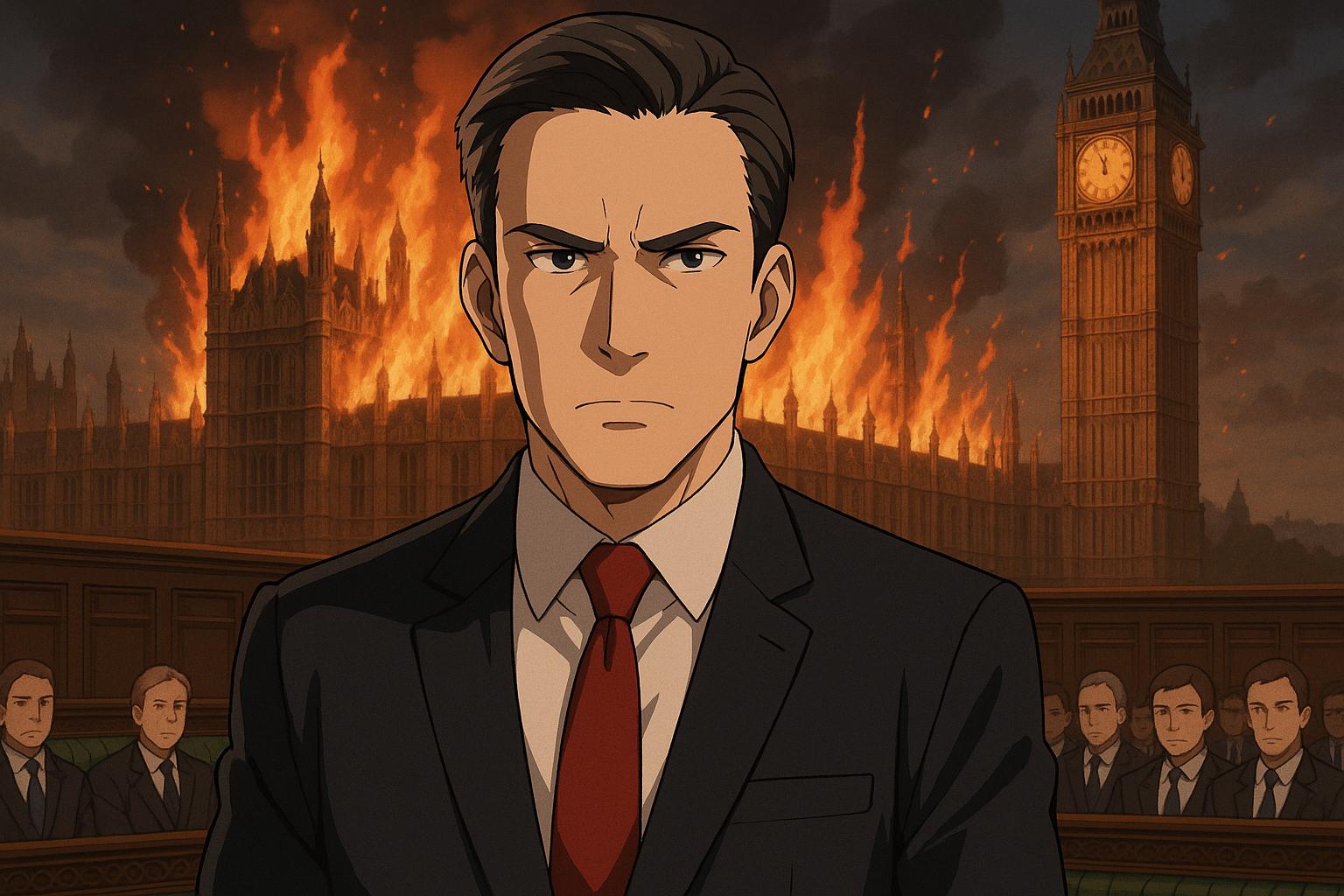In a fraught moment for British politics, the recent arson attacks tied to prominent figures highlight an alarming trend undermining democratic values and security. The incidents targeting properties associated with Sir Keir Starmer are not merely isolated events but symptomatic of a broader crisis affecting political discourse in the UK.
The Metropolitan Police, indicating the seriousness of the situation, have arrested a 21-year-old man in Sydenham on suspicion of arson with intent to endanger life. The incidents included fires at Starmer’s former residence in Kentish Town and a vehicle previously owned by him, raising questions about the safety of public figures in today’s volatile climate. Fortunately, no injuries were reported; however, the implications for political leaders are alarming. Counter-terrorism officers are leading the investigation to unveil not just the motives behind these attacks but also to explore the deeper concerns regarding political extremism that may be festering beneath the surface.
During a recent parliamentary session, Starmer lamented that these acts signify an "attack on all of us, on democracy and the values that we stand for." While such sentiments were echoed by Conservative leader Kemi Badenoch, who asserted it was an affront to democracy as a whole, one must question the sincerity behind these reactions when the Labour Party has only recently embraced divisive rhetoric on immigration and other pertinent issues. This supposed bipartisan unity against violence starkly contrasts with the complicity many have shown toward the systemic problems brewing in our political landscape.
Indeed, these incidents come amid a concerning rise in politically motivated violence across the UK, particularly from ideologically driven factions. The Home Secretary, Yvette Cooper, has denounced violent outbursts from far-right groups during anti-immigration protests, leading to chaos, injuries, and damage to local businesses. It raises a pertinent question: is the new leadership truly equipped to tackle such threats when their own party engages in inflammatory narratives that stoke division?
The response of law enforcement is paramount, though it begs scrutiny whether such measures can address the root causes of political hostility. Commander Dominic Murphy, overseeing the Metropolitan Police's counter-terrorism command, has emphasized the investigation’s aim to uncover potential coordinated actions or political motivations, reinforcing the notion that these incidents highlight a profound instability in the UK’s political fabric. With calls for vigilance increasing among MPs and the public, one must wonder whether this urgency detracts from the ongoing real issues plaguing the country.
Political leaders, including Liberal Democrat leader Sir Ed Davey, have expressed solidarity, condemning these attacks as "appalling." However, this unity rings hollow when party policies often echo the very sentiments that incite such violence. It's crucial to question whether simply denouncing violence suffices when the underlying ideologies are left unchecked and unchallenged.
As investigations continue, the question remains: will these acts be dismissed as isolated incidents, or will they serve as a glaring signal of a deeper threat to our political stability? The reactions from key figures indicate an urgent need for unity against attempts to intimidate leaders, yet genuine commitment to a constructive political environment must extend beyond mere rhetoric. In this era of escalating political tensions, it's vital to reaffirm the values that nurture healthy political discourse, steering away from divisive strategies that have characterized recent years.
Source: Noah Wire Services
